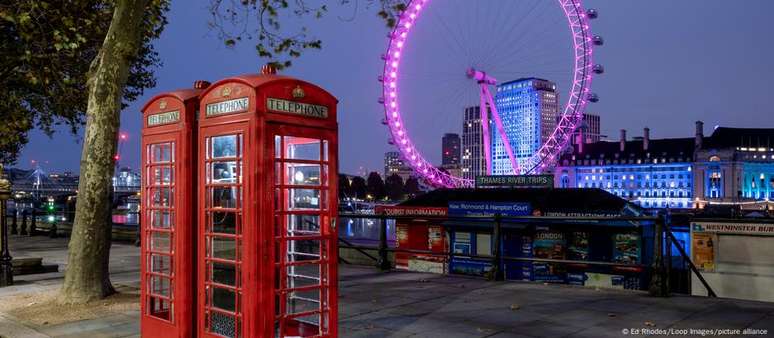Brazil tops the UK’s list of foreigners returning to their home countries in 2024. Up to September this year alone, around 2,500 Brazilians have received assistance to leave the UK. For two and a half years Brazilian manicurist Fernanda (fictitious name) lived in London with her husband and 7-year-old daughter. The three moved to the UK at the invitation of other relatives, but the lack of financial stability and constant disagreements turned their dream of a better life abroad into a nightmare.
Earlier this year, the family discovered they could return to Brazil through the voluntary return service of the Home Office, the UK ministerial department responsible for immigration. Through it, Brazilians in an illegal situation receive, in addition to the plane ticket, financial support of up to 3 thousand pounds, approximately R$ 23 thousand, to return to Brazil.
In 2024, approximately 2,500 Brazilians have done the same as Fernanda, requested this assistance and returned to Brazil. It’s like around 11 Brazilians leave the UK like this every day.
Brazilians are among the three nationalities most voluntarily returning from the UK in 2024, behind only Indians and ahead of Albanians. Between January and September 2024 there were 2,900 voluntary repatriations, the majority of which, around 86%, were carried out in assisted mode. Others paid for themselves.
The number is much higher than that recorded in the same period in 2023, when 1,700 Brazilians had voluntarily left the UK, an increase of 73% in one year.
“There were at least three other families with small children on the same flight as mine, as well as a single man,” says Fernanda, who returned in May on a commercial flight.
Charter flights only with Brazilians
In early December, the Sunday newspaper The Observer published a report claiming that around 600 Brazilians had been sent back to Brazil on three secret charter flights. The vehicle even used the word deportations to refer to these cases.
Brazil’s Ministry of Foreign Affairs denied that the flights were secret and that they involved deportations. According to Itamaraty, the Brazilians would return through the voluntary return program.
Agency sources confirmed to DW that it was the United Kingdom itself that proposed the organization of the flights and that this was the first year in which this measure was implemented. Furthermore, Itamaraty sources state that, in reality, the flights carried out in 2024 were four and not three as The Observer had published.
In addition to the flights published by the English newspaper, which occurred on August 9, September 23 and September 27, there was also one on November 28. The agency declined to confirm the number of Brazilians sent back. In August the TV channel Band even reported a flight with 200 Brazilians returning from the UK.
In practice, it is not known how many Brazilians on these four flights returned because they wanted to or because they were forced to do so. A Brazilian interviewed by DW, who preferred to remain anonymous, said a friend was deported in the second half of this year.
“He was approached at Liverpool Street station in London. He said they were stopping randomly. The police officers were sorting and checking the document. He said they were disguised and checking people’s identification with a tablet,” he says . Her friend, who had been living in the UK since 2022, was detained for ten days before returning, in this case without financial support.
As a result of the pandemic, both voluntary and forced returns have increased in the UK. This year, around 29,000 people were returned to their home countries through the first week of December alone, 25% more than in 2023 and the highest number since 2017, according to the University of Oxford’s Migration Observatory .
According to data from the Ministry of the Interior, which includes information up to September 2024, the number of Brazilians detained for immigration reasons increased by 8% between 2023 and 2024. Brazil was the third largest nationality in terms of number of detainees , second only to Albania and Romania respectively.
In total, in 2024, 1,100 Brazilians were detained in the UK due to immigration issues and 114 were in prison as of September. Of those detained, 413 were deported.
Reflection on British migration policies
In March this year, the UK implemented new immigration rules. These include the increase in the gross minimum wage required to obtain a work visa and bring dependents, which rose from 26.2 thousand pounds per year to 38.7 thousand pounds (about R$285 thousand). Additionally, students who are not pursuing postgraduate studies in research programs are prohibited from bringing dependents. The aim of the measures is to reduce immigration.
“Both visa grants and net migration fell in 2024, indicating a significant impact of the restrictions,” said Mihnea Cuibus, a researcher at the University of Oxford’s Immigration Observatory. Both the Conservative and Labor governments, explains Cuibus, argue that returns of illegal immigrants must increase.
The goal is to increase detentions of illegal immigrants by at least 15%. “However, it is unclear how much of the recent increase in yields is due to new measures rather than a continuation of previous trends,” Cuibus says.
Because it’s easy to send Brazilians back
The Voluntary Return Service (VRS) is a scheme aimed at those who have entered England, Scotland, Wales and Northern Ireland illegally or have overstayed their visas. Those who have asked for asylum or the right to remain in the UK, as well as victims of modern slavery, can also apply to return.
According to Cuibus, this type of measure is beneficial for the British government as it is cheaper and more humane. A 2015 estimate puts the cost to the British government of voluntary return at around £7,000 (R$53,000), while a forced removal could be as high as £15,000 (R$115,000). “And these values have probably increased significantly over the last decade,” recalls Cuibus.
The UK has repatriation agreements with 24 countries. Brazil is not on that list, but there are some factors that explain why the country tops the list of citizens removed from the UK.
One of these is the number of residents: around 230,000 Brazilians live in the UK, the second largest Brazilian population in Europe. Another factor is the political and socioeconomic situation. “It’s much easier to bring someone back to relatively peaceful countries where there are economic opportunities, like Brazil or India, than to places like Iraq or the Democratic Republic of Congo,” Cuibus says.
On the other hand, Brazilians are entitled to receive financial assistance because Brazil is a developing country, according to the Organization for Economic Co-operation and Development (OECD).
Until March 2022, voluntary return was carried out in collaboration with third sector organizations that impacted foreign communities, says Vitória Nabas, a Brazilian immigration lawyer and member of the NGO Casa do Brasil, an entity that has worked to five years as project facilitator.
At the time, Brazilians went to the institution’s headquarters to interview agents from the Ministry of the Interior, and people linked to the NGO helped with the translation. Collaboration with the entities, however, was terminated without justification, Nabas says. “When we facilitated the project, people arrived in Brazil in less than a week. Now they wait on average six months,” he says.
Currently, the process involves filling out a form on the government website and waiting for a response from the authorities.
Volunteers, but not that much
Another factor contributing to the return of Brazilians, voluntarily and involuntarily, are the challenges of remaining in the UK. With Brexit, from January 2021, Brazilians with dual European nationality have lost the right to live, work or study in the UK without a visa.
As a result, explains immigration lawyer and sociologist Edmar da Rocha, many Brazilians with Portuguese, Italian and Spanish citizenship or their dependents have become illegal. “The UK doesn’t offer amnesty, it doesn’t have public policies to regularize a person. What you have are immigration routes, through marriage, study, work and family,” explains Rocha.
According to him, the Brazilian community faces two main challenges: meeting immigration and financial criteria. The cost of applying for a first visa, which lasts two and a half years, can reach up to £3,800 (R$30,000). “Only the health tax, which amounted to 735 pounds, has increased to 1,035,” adds Rocha. Permanent residency requires a minimum of three applications, which cost the same amount as the first.
Therefore, the use of the word “voluntary” to describe returns is considered controversial. “I met a woman who got pregnant from a Brazilian, he didn’t give her assistance and she was here alone with the baby, without being able to work. She didn’t want to go back, but it was out of desperation”, explains Fernanda. .
According to The Observer, there has been at least one case on charter flights of a female victim of domestic violence who was denied the right to remain in the UK and was forced to return.
Sources at Revibra, a support network for migrant women victims of domestic violence or anti-immigrant discrimination, told DW that it is very difficult to report cases of domestic violence in the UK and many women are told to return when they seek social assistance. .
“Immigrants often find themselves facing pressure situations, such as the risk of forced deportation, or find themselves without viable alternatives to regularize their situation, which ends up making the program [de retorno] a sort of last resort,” says Francine Mendonça, immigration expert at LondonHelp4u.
Mendonça specifies that every month he receives, on average, ten people interested in understanding and undergoing the voluntary repatriation process. Reported problems include lack of stable employment, health problems or isolation. There are also those who want to return to Brazil to be close to their family after years of living in the UK.
“Many find themselves in an irregular situation, either because their visa has expired or because they have never had a formalized legal status,” he says. Anyone who joins the voluntary return scheme cannot return to the UK for up to five years.
Fernanda says she has no plans to return to the UK for now. “The situation was very difficult, if I hadn’t had my daughter I would have done more. But with her it wasn’t possible.”
Source: Terra
Rose James is a Gossipify movie and series reviewer known for her in-depth analysis and unique perspective on the latest releases. With a background in film studies, she provides engaging and informative reviews, and keeps readers up to date with industry trends and emerging talents.





-1h7z8ugdh88jb.jpg)


